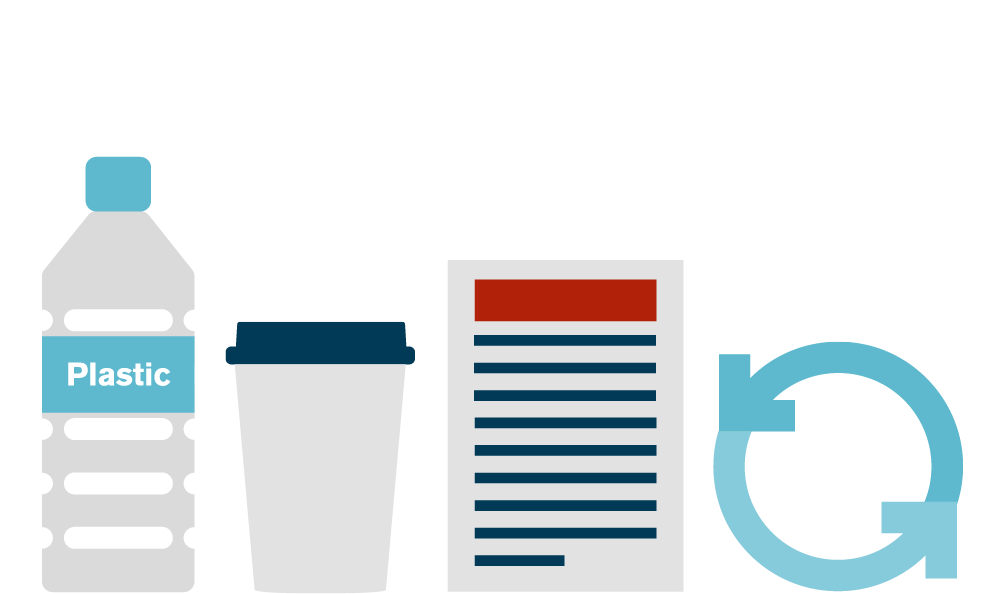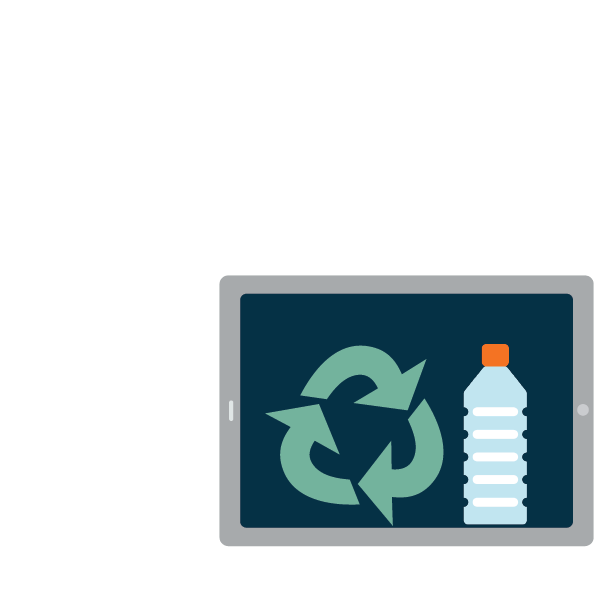Starting from 2025, entities marketing products in selected beverage packaging in Poland will have to achieve certain levels of separate collection of used packaging or packaging waste (77% in 2025 and as much as 90% from 2029).
This obligation will be implemented through a deposit-refund system (except for those directly introducing beverage container products, who will be able to fulfill it outside the deposit system).
The deposit-refund system is a major challenge for beverage producers - they will either have to establish and finance the operation of a deposit-refund system or join such an operator. Stores will also have their part in the system, as they will be required to account for the deposit and collect packaging from consumers (mandatory for the large ones).
An overview explanation of how the deposit-refund systems will work can be found here: map
Which packages will the deposit system cover?

- Disposable plastic bottles up to 3l,
- Metal beverage cans up to 1l; and
- Reusable glass bottles up to 1.5 l.
Which entities need to prepare for the deposit-refund system?
- Entities introducing the above beverage containers in Poland - i.e. their producers, those commissioning the production of private label beverages, but also importers or those importing these products into Poland (as a result of intra-Community acquisition);
- Stores - both large (over 200 m2) and smaller stores will have their obligations under the deposit-refund system.
How can we help?
- Beverage producers
Legal and tax challenges for the beverage industry
The beverage industry is understood to mean those who place packaged beverages on the market (including, but not limited to, non-alcoholic, alcoholic, dairy and other beverages), including, but not limited to, their producers or importers.
The new regulations will particularly affect the beverage industry, as only 3 types of used beverage packaging (including, among others, alcoholic, non-alcoholic, and milk packaging) will be covered by the separate collection system. It is worth noting that other packaging introduced to the market, such as disposable glass bottles, liquid food cartons and others, will not be subject to a deposit nor collected in the system.
Producers whose packaging will be covered by the system must now decide whether they want to invest in establishing a deposit-refund system (becoming a shareholder in the operator, as a joint stock company) or whether they prefer to join such an operator by signing an agreement.
It is crucial to analyze the costs of not only joining an operator but also the costs of fulfilling other legal obligations, e.g. for labeling, packaging, sourcing recycle, and the new logistics of reusable bottles that, collected in the system, will return to the producer for refill.
What do we offer?
- The deposit-refund system, and how will it work? - General legal and tax training (basic level)
- Roadmap of the deposit-refund systems - key responsibilities for your business. (Advanced level, workshop)
- Legal and tax advice to deposit-refund system operators
- Ongoing legal and tax support related to participation in the deposit-refund system
- Stores
A logistics revolution for stores and consumers
The second market segment facing a major logistical challenge is stores and retail chain.
Smaller stores will participate in the system through mandatory collection of a deposit, which they will then have to account with the operator.
Although only those units with a sales area of more than 200 m2 will be obliged to participate in the collection of used packaging, experience in other countries shows that smaller stores will also want to participate in such a deposit-return system.
Stores aiming to collect used packaging must already start planning the siting of waste and packaging infrastructure, including its compliance with building, space, health and safety regulations, etc. Property titles and any required environmental permits should be checked.
It is also important to define the tax implications of implementation a deposit-return system, joining the deposit-refund system operator, incurring expenses for the collection of containers and packaging waste, introducing a logistics system for the separate collection of packaging and packaging waste, as well as incurring the costs of maintaining and operating the records required by the Act.
What do we offer?
- The deposit-refund system, and how will it work? - General legal and tax training (basic level)
- Roadmap of the deposit-refund system key responsibilities for your business. (Advanced level, workshop)
- Compliance DRS - can you safely collect containers and packaging waste in your shop (as part of a deposit system)?
- Ongoing legal and tax support related to participation in the deposit-refund system
- Consumer education - what responsibilities do stores have?
- Other entrepreneurs
Challenges to the deposit-refund system are not limited to beverage marketers or stores.
It is worth noting that there is a wide range of companies that are not legally obliged but would like to participate in the deposit-refund system, e.g. through the collection of used beverage containers, such as petrol stations, municipalities, large department stores, and others.
The second group are entrepreneurs, involved in the logistics of the deposit-return system, especially producers of equipment, technological and IT infrastructure, transport companies, and other operators in the area of packaging waste or packaging management.
What do we offer?
- The deposit-refund system, or how will it work? - General legal and tax training (basic level)
- Ongoing legal and tax support related to the planned participation in the deposit-refund system
- DRS compliance, or what to do to participate in the deposit-refund system.






